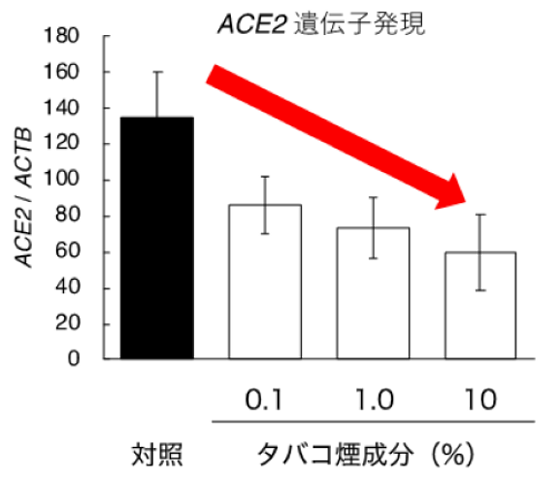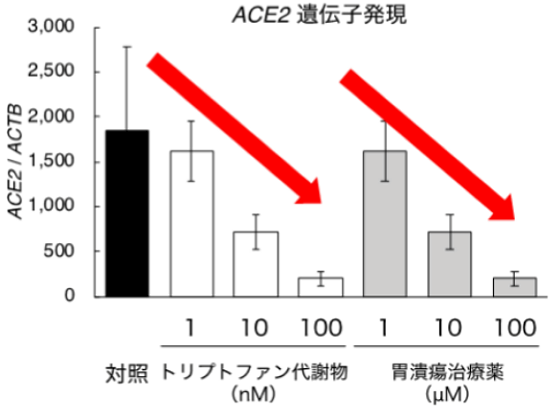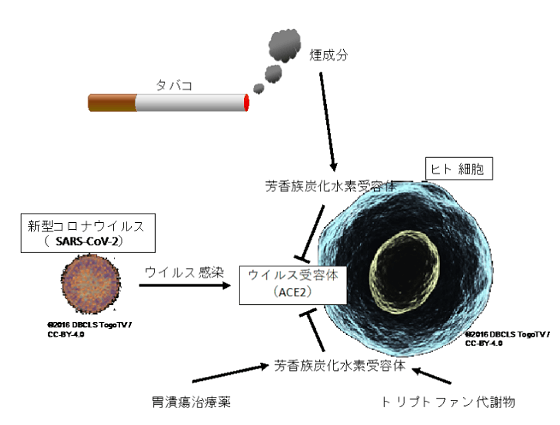How Does Smoking Affect Coronavirus Disease?

There is a paradox in the relationship between new coronavirus infection (COVID-19) and smoking, and
Drugs that mimic effects of cigarette smoke reduce SARS-CoV-2's ability to enter cells
https://medicalxpress.com/news/2021-09-drugs-mimic-effects-cigarette-sars-cov-.html
[Research Results] Surprising effects on gastric ulcer drug and substances extracted from cigarette smoke-Suppressing infection of new coronavirus to human cells- | Hiroshima University
https://www.hiroshima-u.ac.jp/rbm/news/66158
Substances called polycyclic aromatic hydrocarbons (PAHs) contained in tobacco are known to bind to receptors called aromatic hydrocarbon receptors (AhRs) and activate AhRs. AhR, a type of receptor found in mammalian cells, is present on the surface and inside of cells and can increase or decrease the expression of specific genes as a transcription factor.
On the other hand, the new coronavirus (SARS-CoV-2) is infected by binding to the receptor ACE2 present in human cells. From this, the research team investigated whether PAHs activate AhR and change the gene expression level of ACE2.
The research team first investigated the gene expression levels of ACE2 in various cell lines and found that cells derived from the oral cavity, lungs, and liver show the highest ACE2 expression.
With this in mind, the team exposed cells with high levels of ACE2 expression to various doses of tobacco smoke extract (CSE) for 24 hours. As a result, a concentration-dependent reaction was observed in lung and liver cells, in which the greater the exposure to CSE, the more the expression of ACE2 was suppressed. However, it seems that concentration-dependent suppression of ACE2 expression was not observed in the oral cavity.

In addition, in order to investigate the involvement of AhR in ACE2 more directly, the research team has investigated the effects of

Further

Although it is not possible to conclude from the above research results that smoking can prevent COVID-19, it is believed that the results of this research will help to better understand the mechanism of COVID-19 and help develop therapeutic agents. increase. Based on this discovery, the research team is proceeding with preclinical and clinical trials toward the development of a new drug for COVID-19.
Related Posts:
in Science, Posted by darkhorse_log







